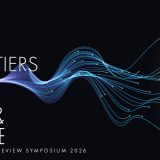Professor Larry Rosenthal Discusses Supreme Court’s Recent DNA Ruling on San Francisco NPR Broadcast
June 4, 2013
On Monday, the U.S. Supreme Court ruled in Maryland v. King that police may take DNA from people arrested in connection with serious crimes. The federal government and 28 states, including California, collect DNA from people who have been arrested instead of waiting for a conviction. This morning, Chapman Law Professor Larry Rosenthal joined Erin Murphy, professor of law at NYU Law School, and Hank Greely, director of the Center for Law and the Biosciences and law professor at Stanford University, to discuss the implications of the decision on San Francisco’s KQED Forum radio broadcast.
The court ruled that police can take DNA samples from people who are arrested but not yet convicted of a crime to see if the DNA matches any samples from unsolved crimes in a national database. The majority opinion argued it’s a booking procedure, like modern day fingerprinting. But opponents say it’s a major change in police powers that tramples the privacy of suspects who haven’t been proven guilty. Professor Rosenthal discussed what the ruling will mean for pending challenges to California’s DNA collection program.
Professor Rosenthal is a former U.S. Supreme Court clerk, former federal prosecutor and a Harvard Law School graduate. He currently teaches Civil Rights, First Amendment Law, Constitutional Argument, Criminal Law, Criminal Procedure and Local Government Law at Chapman.

